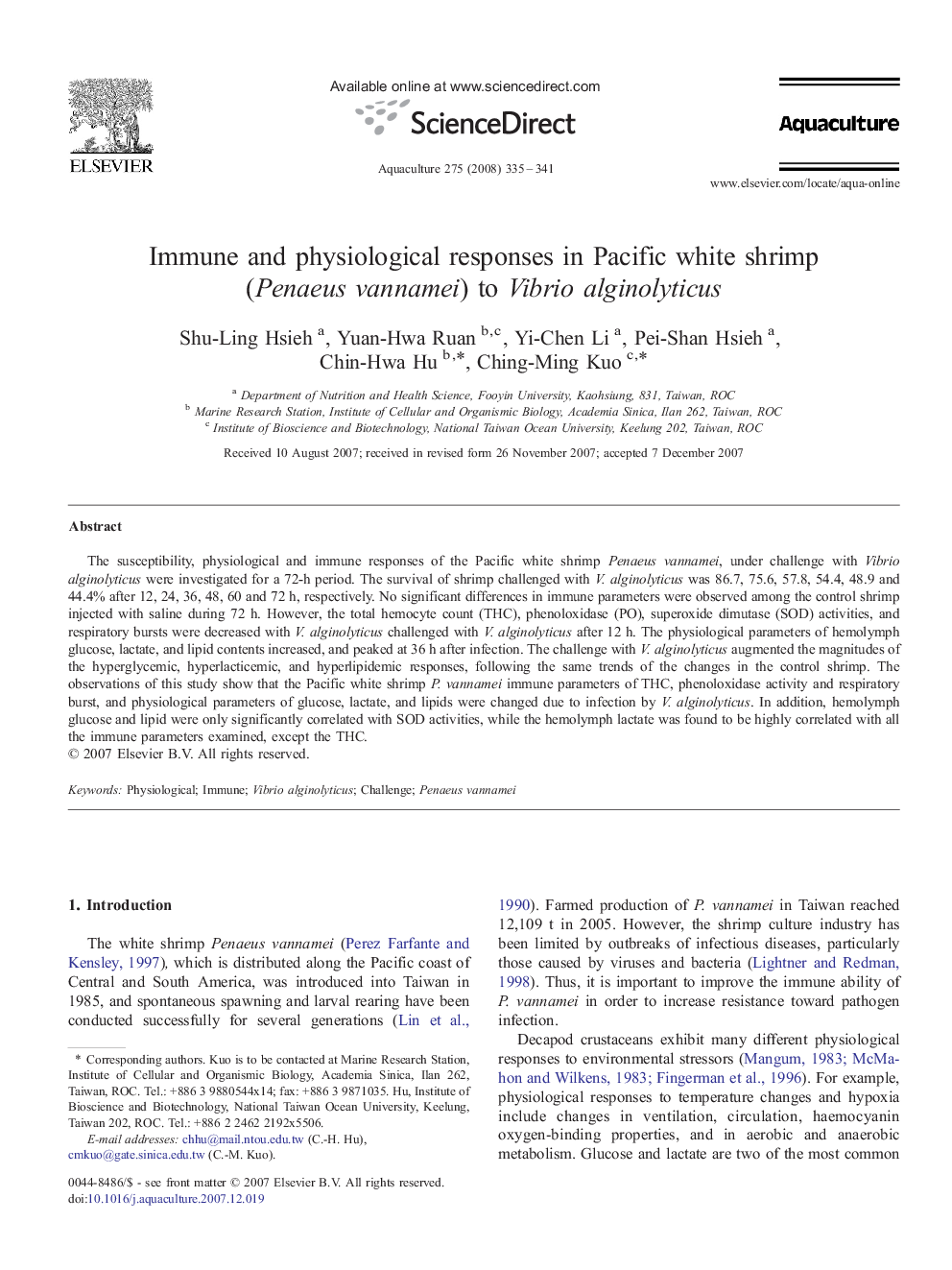| Article ID | Journal | Published Year | Pages | File Type |
|---|---|---|---|---|
| 2424876 | Aquaculture | 2008 | 7 Pages |
The susceptibility, physiological and immune responses of the Pacific white shrimp Penaeus vannamei, under challenge with Vibrio alginolyticus were investigated for a 72-h period. The survival of shrimp challenged with V. alginolyticus was 86.7, 75.6, 57.8, 54.4, 48.9 and 44.4% after 12, 24, 36, 48, 60 and 72 h, respectively. No significant differences in immune parameters were observed among the control shrimp injected with saline during 72 h. However, the total hemocyte count (THC), phenoloxidase (PO), superoxide dimutase (SOD) activities, and respiratory bursts were decreased with V. alginolyticus challenged with V. alginolyticus after 12 h. The physiological parameters of hemolymph glucose, lactate, and lipid contents increased, and peaked at 36 h after infection. The challenge with V. alginolyticus augmented the magnitudes of the hyperglycemic, hyperlacticemic, and hyperlipidemic responses, following the same trends of the changes in the control shrimp. The observations of this study show that the Pacific white shrimp P. vannamei immune parameters of THC, phenoloxidase activity and respiratory burst, and physiological parameters of glucose, lactate, and lipids were changed due to infection by V. alginolyticus. In addition, hemolymph glucose and lipid were only significantly correlated with SOD activities, while the hemolymph lactate was found to be highly correlated with all the immune parameters examined, except the THC.
